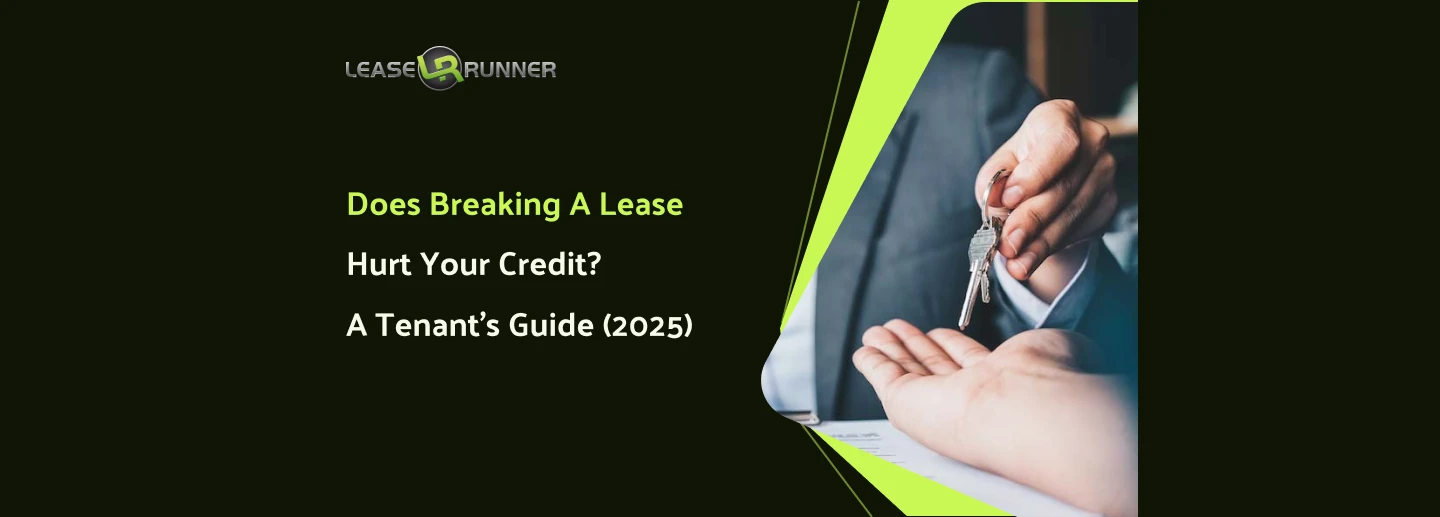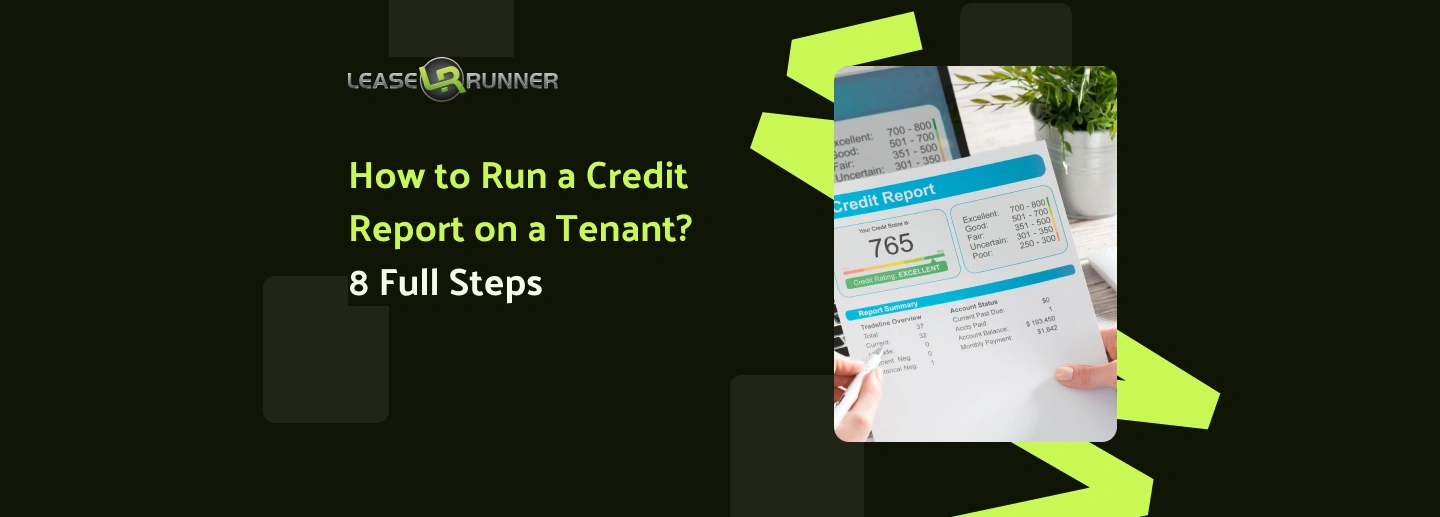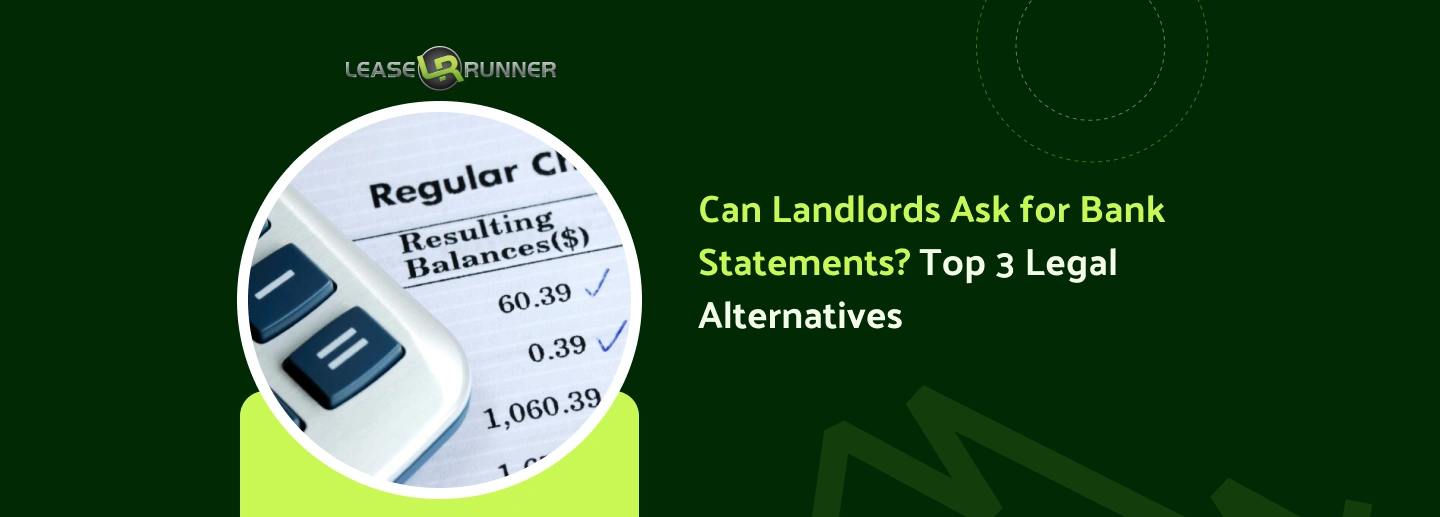Does breaking a lease hurt your credit? The answer depends on your actions. If you pay all fees, penalties, and outstanding rent, breaking a lease typically won't hurt your credit. However, if you leave debts unpaid and they are sent to collections or result in court judgments, your credit score can be damaged for up to seven years.
To avoid long-term harm, communicate with landlord, fulfill your financial obligations, and monitor your credit regularly.
By understanding the consequences of breaking a lease and taking proactive steps, you can protect your credit and rental history, ensuring a smoother transition to your next home. No need to wait any longer, let’s scroll down and check our comprehensive guide right below!
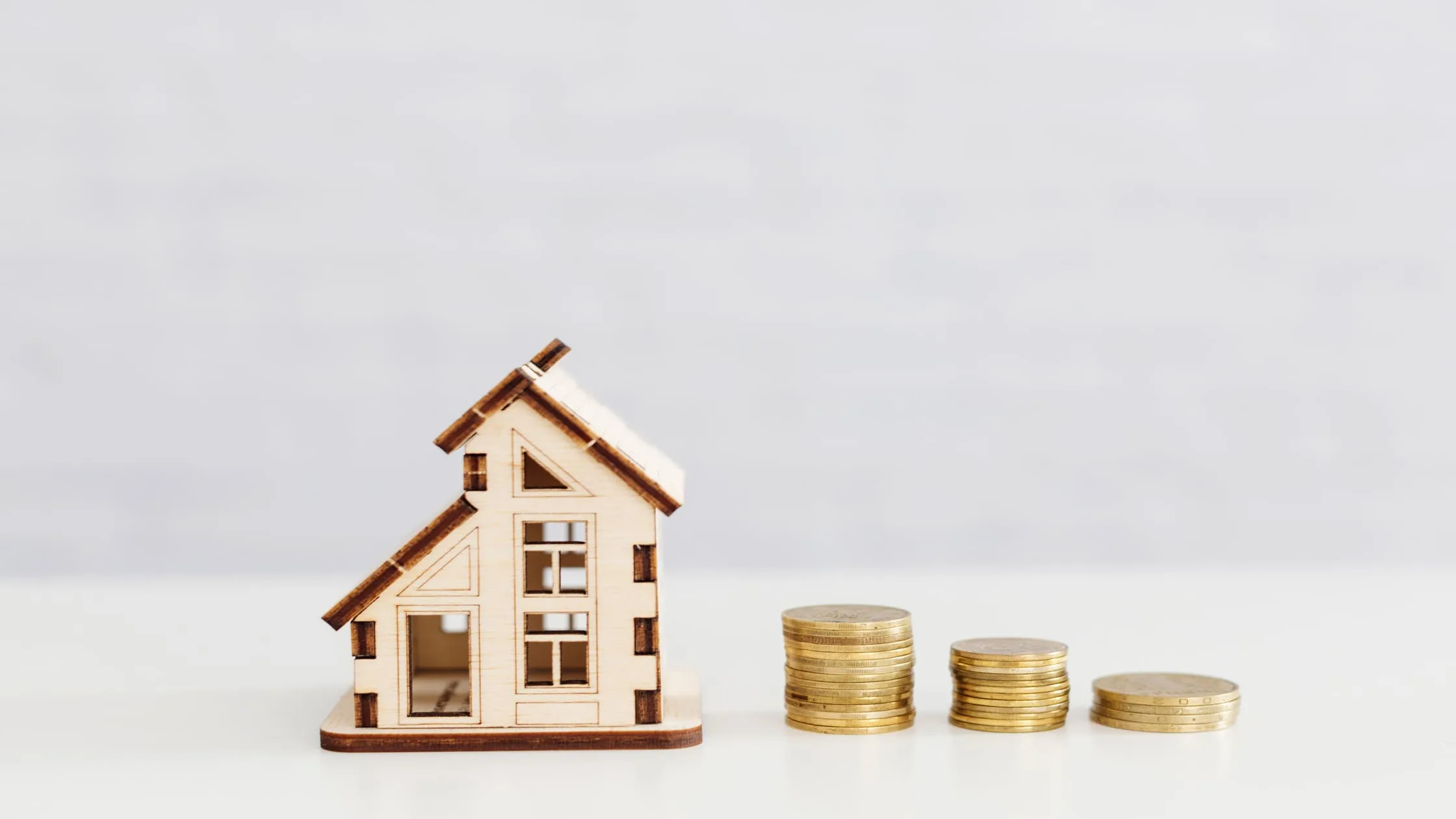
Quick Facts Table: Breaking a Lease & Your Credit
What Does Breaking a Lease Mean?
Let's not sugarcoat it: breaking a lease is a hassle. When you sign a lease, you're making a promise to stay put for a set time, usually a year. But life isn't always so tidy. Perhaps you're getting a new job, or maybe you need to move for a valid reason for breaking lease (such as military service or landlord harassment, depending on state law). Sometimes, you just need to go.
Breaking a lease means you're leaving before your contract is up. Most landlords won't just shrug and say "no problem." There's usually paperwork, fees, and sometimes even a scramble to find someone to take your place. Some leases have an early termination clause that requires you to pay termination fee written right in. Others expect you to pay remaining rent until a new tenant moves in. State laws vary, but in many places, landlords must try to re-rent your place. Still, you could owe money for the gap, potentially requiring a settlement for early termination.
So here’s the big question again: does breaking a lease hurt your credit if you leave early but pay everything?
Does Breaking a Lease Hurt Your Credit?
Not automatically. Your credit report doesn’t have a “lease broken” checkbox that gets triggered the moment you return the keys. Credit bureaus don’t care why you moved or how your landlord felt about it. What they do care about is money—specifically, unpaid money.
This is where things get tricky. Breaking a lease itself doesn’t directly hurt your credit, but leaving behind financial obligations can. If you walk away without paying the last month’s rent, skip termination fees, or ignore other financial penalties written into your lease, your landlord can report the balance as unpaid debt. Often, that debt is handed over to a collection agency.
Once a collection hits your credit report, the credit score impact is real. Your score can drop quickly, making it harder to qualify for loans, credit cards, or even for mortgage lenders to approve you. And even if you settle the debt later, the record of that collection can stay on your credit history for up to seven years. (If you're wondering what kind of score is needed, check out: what credit score is needed to rent an apartment).
So, does breaking a lease ruin your credit? Not by itself. But unpaid rent, fees, or penalties that follow can create lasting credit damage if left unresolved.
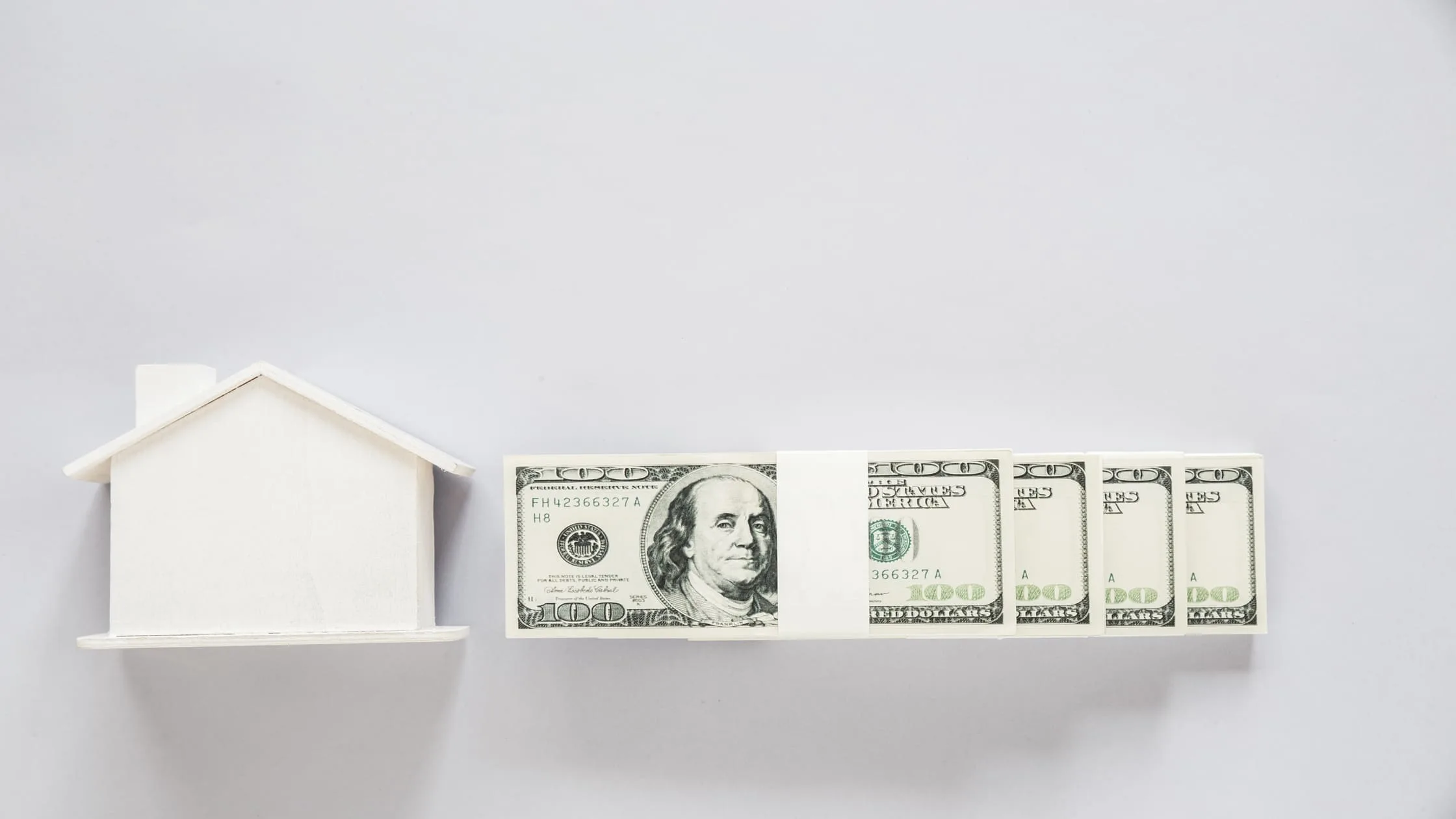
Does Reletting or Subletting Affect Your Credit?
Usually, no, if you do it by the book. If your landlord signs off on a lease transfer or a replacement tenant pays the rent, your credit stays squeaky clean. For example, if you manage a smooth lease transfer to a qualified replacement tenant, and the landlord signs off, you are no longer responsible.
But here's the catch: if the new tenant flakes and you're still on the hook, you could end up with unpaid rent. That's when your credit could take a hit. Always get everything in writing, and make sure you're officially off the lease before you celebrate. Note that there may be a legal right to sublet (except condo/co-op), depending on your state and local laws.
How Long Does a Broken Lease Stay on Your Credit Report?
Up to seven years. If unpaid rent, termination fees, or other lease-related debts are reported to collections or result in a court judgment, that negative information can remain on your credit report for as long as seven years.
Paying off the debt does help, but it doesn’t erase the record immediately. A paid collection looks better to future lenders and landlords than an unpaid one, yet the account may still be visible on your report until the seven-year period ends.
That’s why it’s crucial to resolve any outstanding balance before it escalates. Taking care of the debt early not only prevents collections from dragging down your score, but also shows future creditors that you’re responsible with your obligations.
How can a broken lease damage your credit?
A broken lease doesn’t automatically hurt your credit, but unpaid obligations that follow can leave lasting marks. Here are the main ways it can show up:
Collections account
If you don’t pay rent, termination fees, or other charges, your landlord may turn the debt over to a collection agency. According to the Consumer Financial Protection Bureau (CFPB), collection accounts are one of the most damaging items for your credit score.
For example, if you owed $2,500 for breaking a lease and didn’t pay, that account could be sold to a debt collector within 60–90 days. Once reported, the collection could lower your FICO® Score by up to 100 points or more, depending on your starting credit. And even if you pay it off later, the account can stay visible on your report for seven years under the Fair Credit Reporting Act (FCRA, 15 U.S.C. § 1681c).
Court judgment
Some landlords choose legal action to recover unpaid rent or fees. If a court rules against you, the judgment becomes part of your credit record, signaling to lenders and future landlords that you failed to meet your lease obligations.
Let’s say you broke a lease in New York and owed six months of rent at $2,000 per month. That’s a $12,000 claim. If the landlord wins in court, that judgment may not only hurt your credit but also allow wage garnishment or liens until the debt is satisfied — remedies permitted in many states under landlord-tenant law.
Negative records
Even if you settle the debt later, the history doesn’t disappear overnight. A paid collection or satisfied judgment is certainly better than leaving it unresolved, but under the Fair Credit Reporting Act (FCRA), the negative record can stay on your credit report for up to seven years.
This matters because most landlords don’t just look at whether you currently owe money — they look at your track record. In fact, a 2025 survey by RentRedi and BiggerPockets found that 82% of landlords verify credit scores as part of their screening process. That means even an old, fully paid collection could raise red flags when you apply for your next rental.
For example, if you broke a lease in 2023, left behind $1,800 in unpaid rent, and later paid it in full, the collection account would still appear on your credit report until 2030. A landlord reviewing your application in 2026 might still see that record, and it could influence their decision — even if your finances are now stable.
What are other consequences of breaking a lease besides credit damage?
Money and credit aren’t the only things at stake. The consequences of breaking a lease can follow you in other ways. And again, does breaking a lease hurt your credit? It’s just one piece of the bigger picture.
Financial Penalties: Fees, Lost Deposits, and Unpaid Rent
Most leases spell out the financial consequences of breaking the contract early, and they usually come in several forms:
- Forfeiture of security deposit: In many cases, leaving before the end of the lease means you automatically lose your security deposit. Landlords keep it to offset part of their losses, even if the unit is left in good condition.
- Early termination fees: Some leases require a specific “break fee,” often equal to one or two months’ rent, if you move out ahead of schedule. This fee is separate from your deposit and must be paid in full.
- Liability for remaining rent: In some states, you may still be responsible for pay remaining rent until the landlord finds a replacement tenant, or until your lease term naturally expires
If you don't pay, your landlord can come after you for the money. That's when collections and credit problems start.
Legal Consequences and Eviction Records
If you fail to pay the money owed after breaking your lease, the situation can quickly escalate from a financial dispute to a legal one, leading to severe, long-term consequences that go beyond just your credit report.
- Lawsuit for damages: Landlords can file a civil lawsuit to recover unpaid rent, repair costs, or early termination fees. If the court rules against you, the judgment becomes a matter of public record and can appear on your credit report, lowering your score.
- Wage garnishment: In many states, a court judgment allows landlords to collect directly from your paycheck or bank account. For example, if you owe $5,000 and the court authorizes garnishment, a percentage of your wages could be withheld each pay period until the debt is fully repaid.
- Eviction record: In more severe cases, breaking a lease may result in an eviction filing. Even if an eviction history doesn’t show up on your credit report, it can still appear in tenant-screening databases and rental history reports. Many landlords and property managers check these records, and an eviction can make it extremely difficult to secure housing for years.
Impact on Future Rental Applications
Your rental history doesn’t just stay in the past, it can directly affect your chances of getting approved for future housing. Common consequences include:
- Poor rental history: Unpaid rent, collections, or broken leases can stay on your record and make future landlords hesitant to approve your application. They perform thorough rental verification to assess your reliability.
- Higher security deposit: To reduce risk, many landlords will ask for a larger upfront deposit if they see issues in your rental history.
- Difficulty with corporate landlords: Large property management companies apply strict tenant background screening policies and are less likely to overlook negative records, making approval harder than with private landlords.
Does an Apartment Lease Affect Your Credit?
Usually, no. Most landlords don’t report rent payments to credit bureaus. But some big management firms or rent reporting services do. So does breaking a lease hurt your credit if your landlord doesn’t report rent? Not directly — but collections and judgments still show up.

Steps to Break a Lease Without Damaging Your Credit
Nobody wants to wreck their credit over a move. Here's how to keep your score safe, even if you have to break your lease.
Step 1: Communicate Early with the Landlord
Don't wait until the last minute. The sooner you tell your landlord what's going on, the more likely you are to work out a deal. Maybe they'll let you pay a smaller fee, or help you find a new tenant. Landlords are people, too; they'd rather avoid the hassle of collections or court. Remember to give notice in writing as required by your lease.
Step 2: Negotiate a Payment Plan or Lease Termination Agreement
If you can’t pay in full, propose a plan and get it in writing. Some landlords are open to flexible solutions if they can avoid the cost of court or using the best way to collect rent. Get any agreement in writing, and stick to it. A formal lease termination agreement can spell out exactly what you owe and protect you from future surprises.
Step 3: Use Reletting Options or Subletting if Allowed
If your lease allows it, finding a new tenant is a win-win. You avoid extra fees, and your landlord keeps the rent coming in. Just make sure you're officially off the lease and that the new tenant is reliable. If you're still responsible and they stop paying, you could end up with a credit mess.
Step 4: Pay Outstanding Debts Promptly
Before you hand over the keys, make sure you've paid every cent you owe. Get receipts and keep them somewhere safe. If you settle up before leaving, your landlord has no reason to send your debt to collections. It's the simplest way to avoid credit damage.
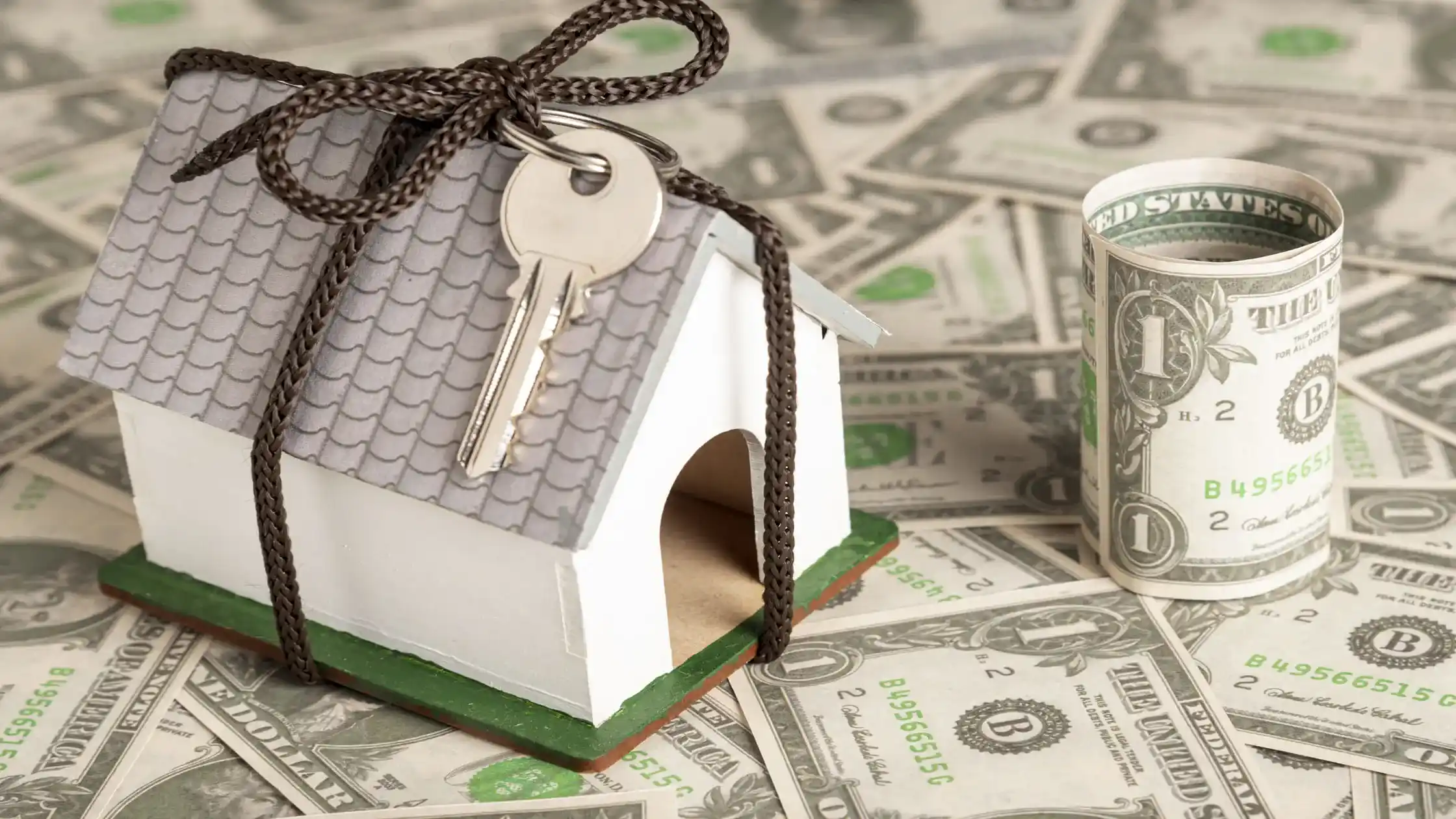
Step 5: Document Everything
Keep copies of emails, letters, and payment receipts. If there's ever an argument, you'll have proof. If your landlord tries to claim you didn't pay or broke the lease without notice, your paperwork can save the day.
Step 6: Know Your Rights
Tenant laws vary by state and city. Some places require landlords to try to re-rent your place or limit the fees they can charge. If you're not sure what's legal, call a tenant union or legal aid group. Knowing your rights can save you money and stress.
How to Check and Monitor Your Credit After Breaking a Lease?
Breaking a lease doesn’t always damage your credit, but you should monitor it. Many landlords use a resident score vs credit score to assess risk, so staying ahead matters. This due diligence ensures that if you are wondering, does breaking a lease hurt your credit, you will know immediately if a debt was reported.
How to check your credit
You’re entitled to a free credit report from each of the three major bureaus—Equifax, Experian, and TransUnion—once every 12 months at AnnualCreditReport.com. This is the only federally authorized site under the Fair Credit Reporting Act (FCRA). Many banks and credit card issuers also offer free access to your credit score or report updates through their apps.
What to look for on your credit report
Go through each section carefully. Pay special attention to:
- Collections accounts – Look for any unpaid rent, lease break fees, or court judgments tied to your old landlord.
- Public records – Check for lawsuits, judgments, or eviction filings.
- Personal information – Make sure your name, address, and Social Security number are correct. Errors here can cause mix-ups with someone else’s debt.
What to do if you find an error
Mistakes happen. If you spot a collection or judgment you believe is inaccurate, file a dispute with the credit bureau that reported it. Under the FCRA, bureaus must investigate disputes—usually within 30 days. You can also request that your landlord or collection agency provide documentation to verify the debt. If they can’t, the item must be corrected or removed.

Bottom Line
Does breaking a lease hurt your credit? It might, but only if you leave debts unpaid or let things spiral to collections or court. Communicate, pay what you owe, and keep your paperwork in order. Know your rights and act quickly if problems pop up.
For renters in 2025, a little planning goes a long way. Break a lease the right way, and your credit (and your reputation) can stay strong. If you want to have more information about this issue, feel free to visit our LeaseRunner blog!
FAQs
Q1. Does breaking a lease ruin your credit?
Not always. If you pay everything you owe, your credit score usually stays safe. Trouble starts when you leave bills unpaid. If your landlord sends your debt to a collection agency, that's when your credit can take a hit.
Q2. How long do broken leases stay on your credit?
If unpaid rent or fees end up in collections or court, the record can stick to your credit report for up to seven years. That's a long time to deal with the fallout. Even if you pay later, the mark can remain.
Q3. Does reletting affect credit?
It depends. Only if something goes wrong and you're still responsible for unpaid rent or damages. Always get everything in writing, especially when dealing with a lease transfer or replacement tenant.
Q4. What are the consequences of breaking a lease?
You might lose your deposit, pay fees, or owe rent until a new tenant moves in. The consequences of breaking a lease can also include legal trouble or trouble renting again. If debts go unpaid, your credit score can drop.
Q5. Does an apartment lease affect your credit?
Most leases don't show up on your credit unless your landlord reports missed payments or uses a rent reporting service.
Q6. How can I minimize credit damage when breaking a lease?
Talk to your landlord early. Pay what you owe. Consider reletting or subletting if allowed. Check your credit report after you move to catch any problems quickly. By taking these steps, you ensure that breaking a lease hurts your credit remains a hypothetical question.
